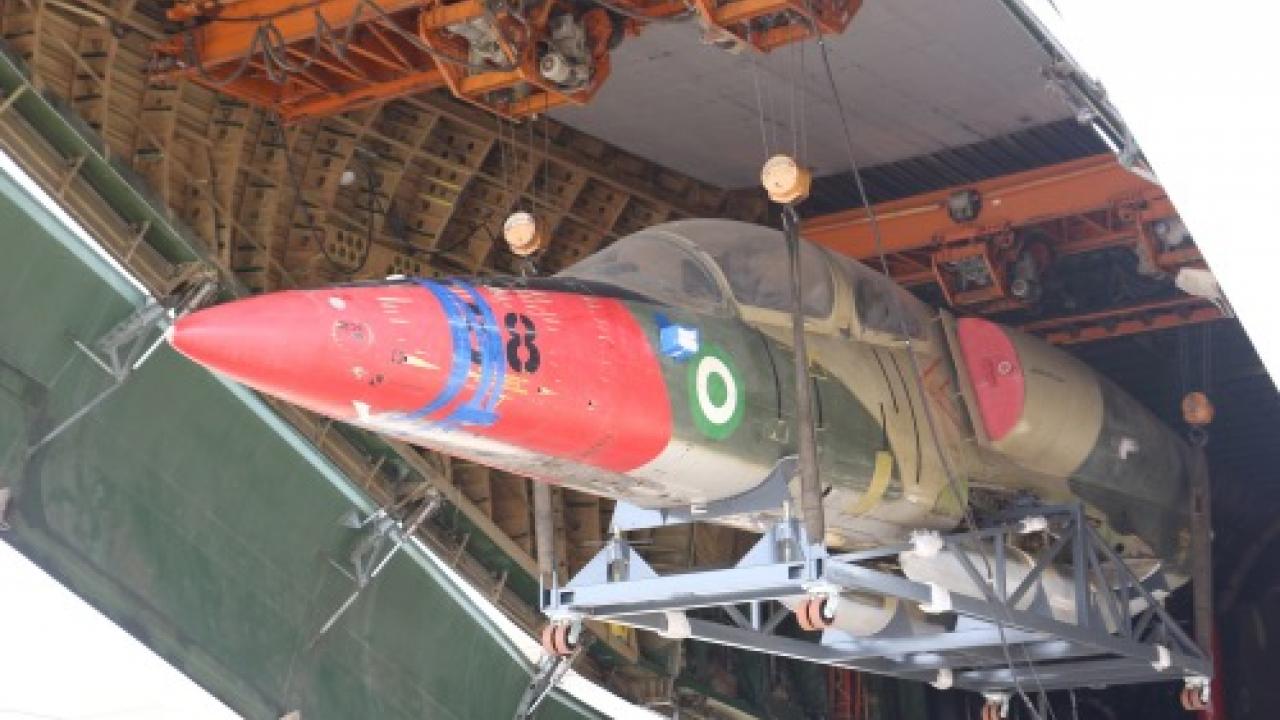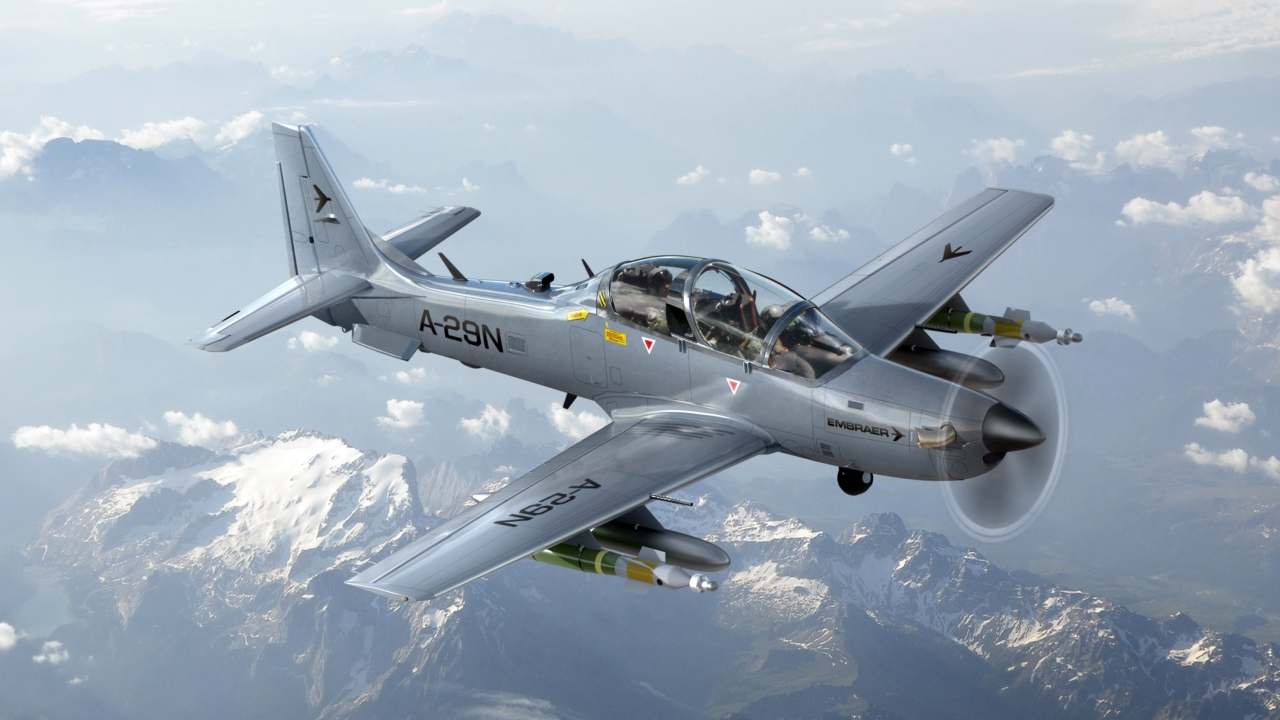Albatross Czechs in… eventually
Prague-based Aero Vodochody recently received three Nigerian Air Force (NAF) L-39ZAs for overhaul and upgrade. Normally, this would have been straightforward but, as Alan Warnes explains, nothing is simple when Covid-19 is involved.

Going, going: One of the three L-39ZAs disappears into the bowels of the Antonov An-124 at Kano Airbase. Picture: Aero Vodochody.
The NAF operates the L-39ZA Albatross jet trainer in combat, when it is used for reconnaissance and ground attacks, and for training pilots at the 403rd Flying Training School at Kano.
Three of its ageing fleet are now undergoing rework in the Aero Vodochody maintenance repair and overhaul facility. Once that’s completed, they will then be upgraded with the Genesys IDU 680 electronic flight instrument system (EFIS).
The work is expected to last about a year.
However, getting the aircraft out of Nigeria and into Czechia took quite some doing.
The Czech-built Albatrosses have been in NAF service for more than 30 years and, until recently, most of them have been grounded.
The NAF originally took delivery of 24 L-39ZAs in 1986/87 and, in 1990, had planned to buy another 27 of the type. However, these were never delivered and, instead, found their way to Algeria.
Over the years, Aero Vodochody has been involved in keeping as many of the aircraft as possible in action.
In 2012, for example, the company reactivated two L-39ZAs and, in 2016, it overhauled 12 VS-1 BRI ejection seats for the aircraft.
In 2019, Aero completed the repairs and extended the life of another three L-39ZAs at Kano Airbase. On December 4 that year, the NAF tweeted an image of two of the type that Aero had returned to service, with factory pilot, Vladimír Továrek, present to carry out the acceptance flights.
The third is also believed to be completed, which would make it six that are now back in the air.
The L-39ZAs are playing a part in the fight against Boko Haram and other Islamic militias in Nigeria’s north, with each aircraft flying around 500 hours in a year.
Putting that into perspective, Aero Vodochody spokesperson, Tereza Vrublov, said: “The most demanding customers usually fly around 350 hours annually.”
In late-2019, the NAF commander, Air Marshal Sadique Abubakar, told me: “Revitalising our fleets of aircraft is important. Working with Aero Vodochody, we have returned three L-39ZAs to service and they are now doing a great job against the BHT terrorists.
“We have also contracted the company to return three more L-39ZAs and upgrade the old analogue cockpit with a new Genesys system. My desire is to upgrade all six – with the additional three coming out of the 2021 budget.
“I am also pleased we had so many NAF personnel involved in returning the aircraft to the air.”
Despite the Covid-19 pandemic, in early-July 2020 Aero set about getting these three L-39ZAs from Kano Airbase to the Czech Republic.
Vrublov, who went to Nigeria with the engineers to pick up the aircraft, explained: “It wasn’t easy to organise a transport aircraft to airfreight the three aircraft when much of the world was not travelling because of Covid-19. The coronavirus was really getting a grip in Nigeria at that time but, after long negotiations, it eventually happened.”
Engineers had also travelled to Kano beforehand, to disassemble the aircraft and prepare them for the journey back. However, commercial flights then stopped from Kano and, later, from the capital, Abuja.
Vrublov continued: “There was no way we could get them home, but we finally resolved this when we organised an Antonov An-124 for transportation.”
In the end, the huge Ukrainian-built cargo transporter also took on a humanitarian dimension. In cooperation with the ministry of foreign affairs, the four-engine strategic airlifter flew from Pardubice International Airport to Nigeria, carrying 10 medical beds from Czech company, Linet, and other medical supplies.
Once at Kano, it took two days to load the L-39ZAs, which by now had had their fuselages, crated along with their wings, tails and horizontal stabilisers, on to the Antonov 124.
The giant freighter then flew back to Pardubice, where the crates were offloaded and transported by road for the hour-long journey to Aero Vodochody.
Once the work is complete, the digital cockpit will provide the NAF pilots with a smoother transition to the new Pakistan Aeronautical Complex JF-17 Thunders that are expected to be delivered this year.
Stay up to date
Subscribe to the free Times Aerospace newsletter and receive the latest content every week. We'll never share your email address.

